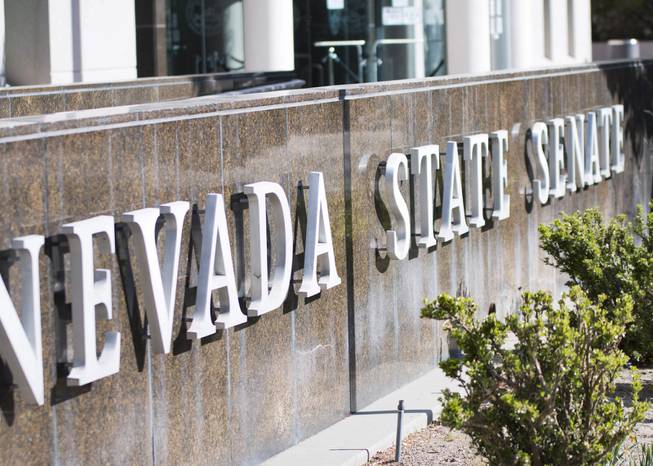Sunday, May 30, 2021 | 10:07 p.m.
CARSON CITY — Nevada lawmakers are discussing a mining tax proposal in the final hours of the legislative session that would result in “meaningful revenue” toward K-12 education.
Mining taxes currently earmarked for the state general fund would instead be put toward education under the proposal that was introduced late Saturday, just two days before the session concludes. The new revenue is estimated at $170 million every two years.
The bill also creates a tiered tax structure for silver and gold mines’ gross revenue, charging a 0.75% excise tax rate for mines making $20 million to $150 million and a 1.1% tax on mines that make more.
The bill received support from a broad coalition of progressive groups, mining interests and education groups at a hearing Sunday evening.
“I don’t believe that there’s very much controversial on the bill,” Assembly Speaker Jason Frierson, D-Las Vegas said. “This bill represents at least the beginning of a conversation and it's reflected in the input that we have had amongst our colleagues across the aisle to try to come up with something that we believe we can move forward with.”
Mines in the state produced a $8.2 billion-worth of silver, copper and other minerals in 2019 — more in non-fossil fuel minerals than any state. They collectively paid $61 million in taxes to the state that year. Now, more of those monies are pegged for education.
John Vellardita, the executive director of the Clark County Education Association, said the bill brought forward significant “advancements and investments” in K-12 education, celebrating the long-held goal of education activists of introducing a new education funding stream.
“The most significant thing that’s out of this legislation is a dedicated funding stream for K-12,” Vellardita said. “Is it enough? No, but it’s a start.”
The bill also has the support of the Nevada Mining Association, which helped introduce the legislation. Tyre Gray, the president of the association, said the mining industry is a “willing payer” toward education, though the industry shouldn’t be expected to shoulder all costs going forward.
“This is really a continuation of a conversation that began before anybody knew what coronavirus was, and it’s a conversation that has continued throughout that because we understand that there is a need to meet a particular desire, there is a need to get the funding for our education system up,” Gray said. “And mining is first in line today to do that.”
The bill is expected to pass through the Assembly tonight and head to the Senate for final approval. It would have to pass with support from both parties, as Democrats do not have the requisite two-thirds majority to unilaterally raise revenue.
That’s why legislative leadership added a $4.75 million tax credit allocation to the Republican-favored opportunity scholarship program, which extend credits to businesses which donate to scholarship organizations, in order to garner bipartisan support.
“This is one of the areas of this bill that took a significant amount of work and collaboration and discussion and partnering, and quite frankly for some, holding their nose and nodding their head,” Frierson said.
Another olive branch extended to Republicans is a change to Medicaid regulations, allowing a recipient to receive direct reimbursements for home health care services.
The measure is expected to receive enough Republican support to pass. Assembly Minority Leader Robin Titus, R-Wellington, called the legislation “critical” for education and mining combined.
The Associated Press contributed to this report.

